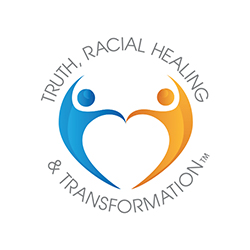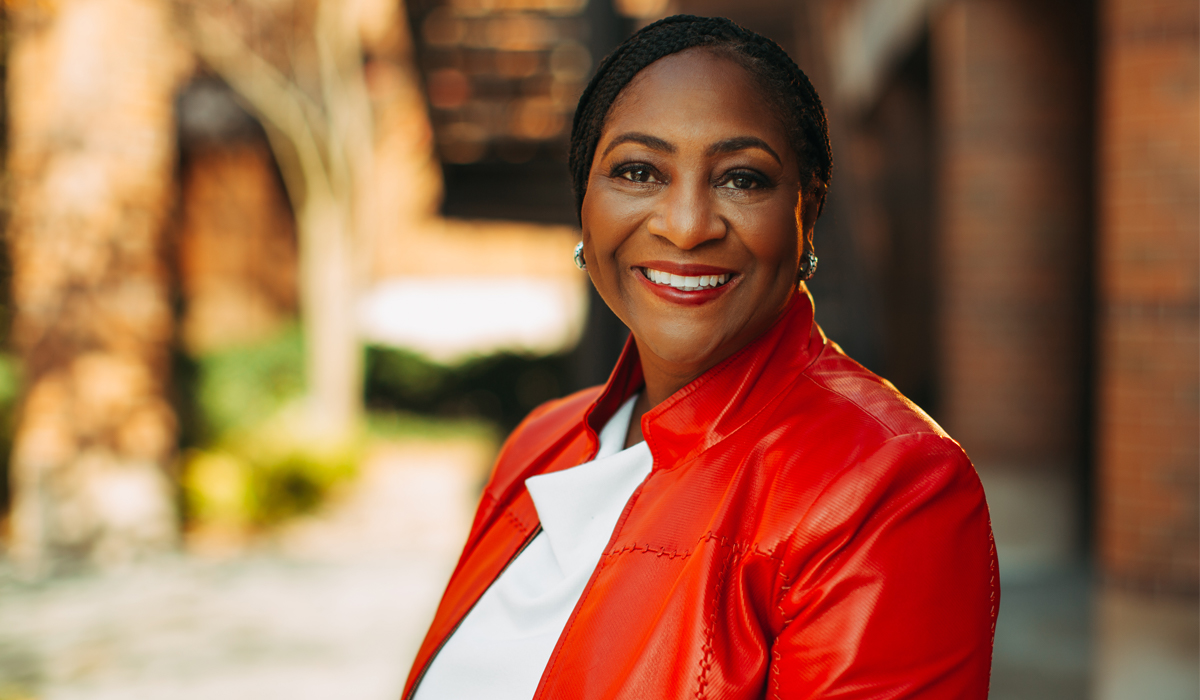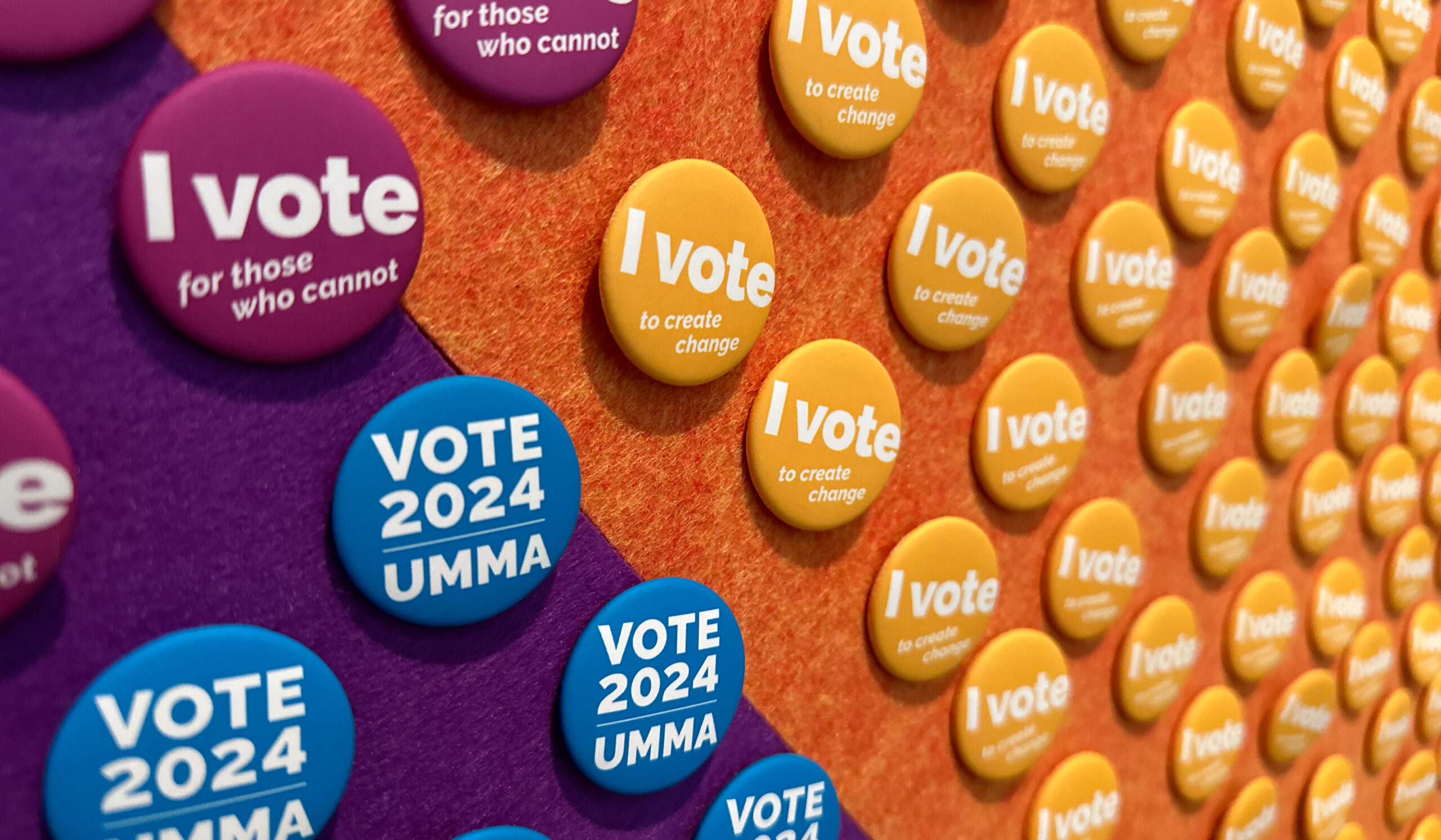As the first woman and African American to lead the W.K. Kellogg Foundation (WKKF) — a philanthropic organization guided by the belief that all children should have an equal opportunity to thrive — Montgomery Tabron has brought incredible personal and professional experience to the role. Not only did she grow up in inner-city Detroit as one of 10 children, she has worked for WKKF for nearly 33 years, devoting her career to the mission.
A member of the Alumni Association board of directors, Montgomery Tabron discusses her work and the importance of this year’s WKKF event on Tuesday, Jan. 19, at 3 p.m. ET, honoring the fifth annual National Day of Racial Healing.
Every year, since the establishment of the National Day of Racial Healing, WKKF has hosted an event. What can people expect to see, hear, and learn this year?
Montgomery Tabron: I hope those who join us for the National Day of Racial Healing will be inspired by the way racial healing conversations can begin to change hearts and minds, and ultimately transform communities. In a quick 100 minutes, they will hear from young people, advocates, and artists, including Ta-Nehisi Coates, John Legend, Yara Shahidi, Padma Lakshmi, Hasan Minhaj, Storm Reid, and more. They’ll listen to and watch performances by spoken word poets and musicians like the Detroit Youth Choir, Aloe Blacc, Connie Lim (otherwise known as MILCK), and Flor de Toloache and hear an original poem by Youth Poet Laureate Amanda Gorman.
The event will also feature in-depth conversations focused on righting historical wrongs and repairing the harms of racism, ensuring employment equity, and the impact of racism on the legal system. I hope anyone who watches will see how racial healing is an essential first step to change because, before you can transform systems and structures, you must have these hard conversations, to make change possible.
How does this event tie into your mission to help children?
Montgomery Tabron: The stark inequities we see today showcase the economic, health, and educational challenges for children of color. Racial healing is the first step in racial equity, and often that begins with a conversation. The National Day of Racial Healing is a place to start the healing journey. It’s an individual journey and a collective one. Change in our communities begins with change in our hearts and minds.
 Many people would like to talk about the impact of racism and the need for racial healing but don’t know where to start. The National Day of Racial Healing is the spark for activities and virtual events across the country bringing people together. There are conversation guides and action kits for individuals, students, businesses, faith leaders, libraries, and for others, tools that will help turn thoughts into action.
Many people would like to talk about the impact of racism and the need for racial healing but don’t know where to start. The National Day of Racial Healing is the spark for activities and virtual events across the country bringing people together. There are conversation guides and action kits for individuals, students, businesses, faith leaders, libraries, and for others, tools that will help turn thoughts into action.
How did your childhood experiences and time at U-M lead you to WKKF?
Montgomery Tabron: Growing up in inner-city Detroit means I was able to observe and experience the inequities we talk about today, in school systems and definitely in economic opportunities. I watched my neighborhood change from a diverse, middle class, thriving place to a place of concentrated poverty as all of the white families moved to the suburbs — including my white friends. As our property values, schools, and communities deteriorated, I benefitted from some very effective charitable programs intended to lift children out of poverty.
I didn’t reengage with white peers until I arrived at U-M, and something had changed. There was definitely an aura of superiority coming from my white colleagues at U-M. I didn’t feel like I belonged. And I must say, at the time I didn’t fully understand. One encounter I starkly remember was when a white colleague asked me why I sat at the table with all the other Black students. She never questioned her own all-white relationships.
These experiences shaped my life and seeded my passion and determination to strive for racial equity as a leader of the W.K. Kellogg Foundation. Fortunately, this passion was perfectly aligned with the mission of the foundation: to improve the lives of vulnerable children, regardless of race, creed, or nationality. My 33 years at the Kellogg Foundation has been a purpose-driven journey. I truly believe this is what I was meant to do. I also firmly believe that racial equity is not only achievable but economically better for all. A growing body of research – including the W.K. Kellogg Foundation publication, The Business Case for Racial Equity – continues to make that point.
What inspires you to keep doing this work when there is so much inequity and pain present, particularly right now?
Montgomery Tabron: As painful as this time feels for us as individuals, facing the painful truths is bringing us together. And that is what inspires me. We have the chance to leverage this energy toward change — to take the righteous fury and determination we see in every call for leadership and channel it into positive action. Every one of us has the opportunity to share ideas of where and how to take action on behalf of our common humanity. It takes will to produce change. Today, our collective will is palpable. That’s what gives me hope for our children.





